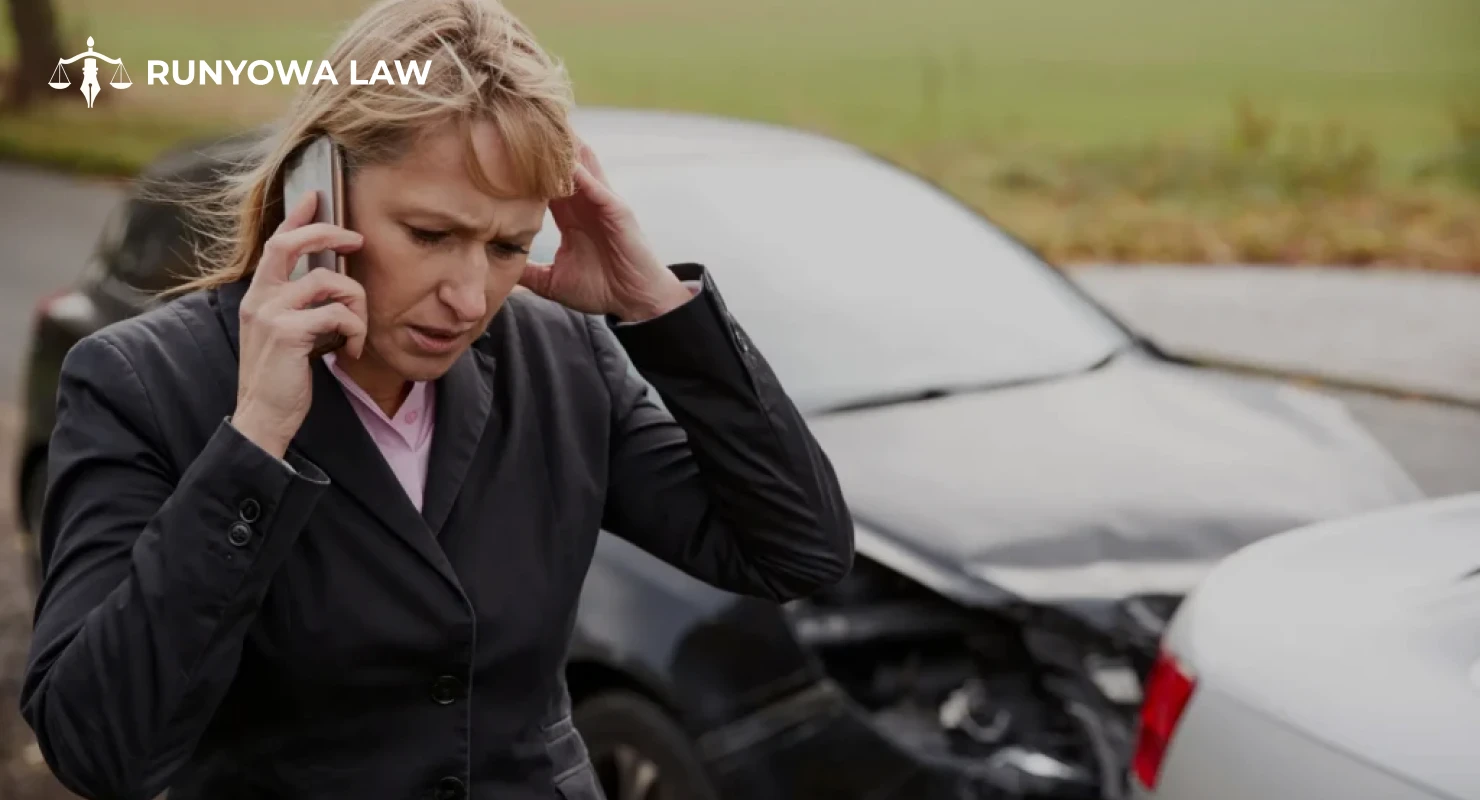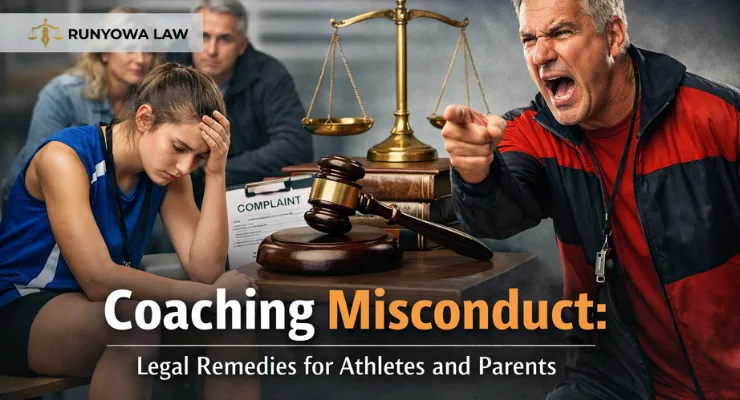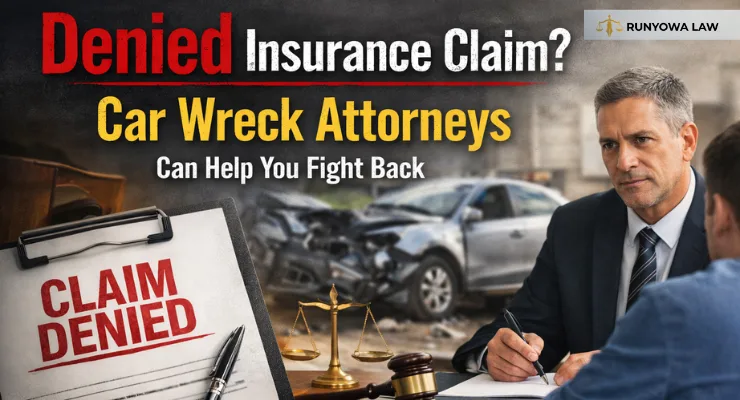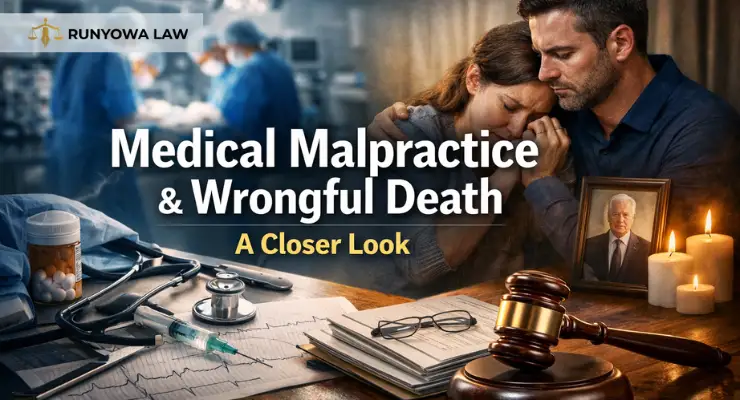Auto accidents can be traumatic, confusing, and emotionally draining. In the moments following a crash, you’re likely focused on your safety, medical needs, and vehicle damage — not the legal implications of your actions. However, the decisions you make immediately after an accident can significantly impact your ability to file and win a successful auto accident claim.
Even honest mistakes — like failing to collect evidence or delaying medical care — can weaken your case or reduce your compensation. Knowing what not to do is just as important as knowing your legal rights.
Here’s a detailed look at the common mistakes that hurt auto accident claims and how to avoid them.
1. Leaving the Accident Scene Too Early
Leaving the scene of an accident, even a minor one, is one of the biggest mistakes you can make. In most jurisdictions, it’s illegal to leave before exchanging information or notifying authorities.
Even if the crash seems minor, stay at the scene until:
- You’ve exchanged information with the other driver(s).
- You’ve taken photos and noted vehicle details.
- Police have arrived and filed an official report (if applicable).
Leaving early can be interpreted as an attempt to avoid responsibility and may severely damage your claim credibility — or even result in criminal penalties.
2. Failing to Call the Police
Many drivers skip calling the police after a seemingly small accident, thinking it’s unnecessary. However, a police report is one of the most important pieces of evidence in an insurance or personal injury claim.
A police report provides an unbiased account of the accident, including:
- Date, time, and location of the crash
- Involved parties and witness statements
- Preliminary findings about fault or negligence
Without it, your claim relies solely on personal accounts — which can be disputed later.
Tip: Always call the police, even if no one appears injured. It’s better to have an official report than to regret not having one later.
3. Admitting Fault at the Scene
After an accident, emotions run high, and it’s natural to say things like “I’m sorry” out of politeness. However, such statements can be interpreted as an admission of guilt, even if you weren’t at fault.
Insurance companies and opposing attorneys can use these words against you. Instead of discussing blame, stick to the facts when talking to the other driver or the police:
- Share your contact and insurance details.
- Provide honest, factual descriptions of what happened.
- Avoid speculating about who caused the accident.
Remember: liability is determined by evidence, not emotion.
4. Delaying Medical Treatment
Many accident victims feel fine immediately after a collision, only to develop pain or stiffness hours or days later. Delaying medical attention is one of the most damaging mistakes for your claim.
Insurance companies often argue that delayed treatment means your injuries weren’t serious — or weren’t caused by the accident. To protect your health and your case:
- Get a medical evaluation as soon as possible.
- Follow all prescribed treatments and appointments.
- Keep records of all medical visits, prescriptions, and expenses.
Prompt medical documentation links your injuries directly to the accident, strengthening your claim.
5. Not Collecting Enough Evidence
Strong evidence is the backbone of any successful auto accident claim. Failing to gather details immediately after the crash can make it harder to prove what happened.
Make sure to document:
- Photos of vehicle damage, road conditions, and injuries
- Contact details of witnesses
- License plate numbers and insurance information
- Traffic or surveillance footage (if available)
If you’re too injured to collect evidence, ask someone else or contact an attorney quickly — they can often help secure crucial information before it disappears.
6. Speaking Directly to the Insurance Company Without Legal Advice
After an accident, insurance adjusters may contact you to “discuss the incident.” While they may sound friendly, their goal is to minimize the payout.
Common tactics include:
- Asking leading questions to make you admit partial fault
- Pressuring you to settle quickly for a low amount
- Recording statements that can be used against you
Before speaking to any insurer — even your own — it’s wise to consult a personal injury lawyer. An attorney can handle communications on your behalf, ensuring you don’t say anything that harms your claim.
7. Accepting the First Settlement Offer
It’s tempting to accept a quick payout, especially if you’re facing medical bills or car repairs. However, initial settlement offers are often far lower than what you truly deserve.
Many injuries have long-term costs — therapy, medication, lost wages, or reduced earning potential. Once you accept an offer, you usually waive your right to future compensation.
Have a lawyer review any settlement before agreeing. They can calculate the true value of your claim and negotiate for a fair amount.
8. Posting About the Accident on Social Media
In the age of digital oversharing, posting photos or comments about your accident might seem harmless — but it can seriously backfire. Insurance companies often monitor claimants’ social media profiles to find evidence contradicting their injuries or statements.
Even a casual post like “Feeling better today!” can be twisted to suggest your injuries weren’t serious.
Rule of thumb: Stay off social media until your claim is resolved. If you must post, avoid discussing the accident, your health, or the case.
9. Missing Deadlines or Paperwork
Civil claims are governed by strict deadlines called statutes of limitations. Missing these deadlines — or failing to submit proper documents — can result in your claim being dismissed entirely.
Each state or region has different rules, but the deadlines typically range from one to three years after the accident. Hiring a lawyer ensures that all filings, evidence, and procedural requirements are handled correctly and on time.
10. Not Hiring a Personal Injury Lawyer Early Enough
Perhaps the most critical mistake is waiting too long to involve an attorney. An experienced auto accident lawyer not only guides you through legal processes but also helps you:
- Gather and preserve evidence
- Handle communications with insurers
- Negotiate fair settlements
- Represent you in court if necessary
Early legal intervention ensures that your rights are protected from the start and that no critical mistakes weaken your case.
Conclusion
Auto accident claims can quickly become complicated, especially when you’re dealing with medical issues, financial stress, and insurance adjusters. By avoiding these common mistakes — and seeking professional legal guidance — you give yourself the best chance of recovering the full compensation you deserve.
Remember: what you do immediately after a crash can make or break your claim. Stay calm, document everything, and consult an experienced lawyer before taking the next step.
Because when it comes to your health, your rights, and your recovery — there’s no room for costly mistakes.




